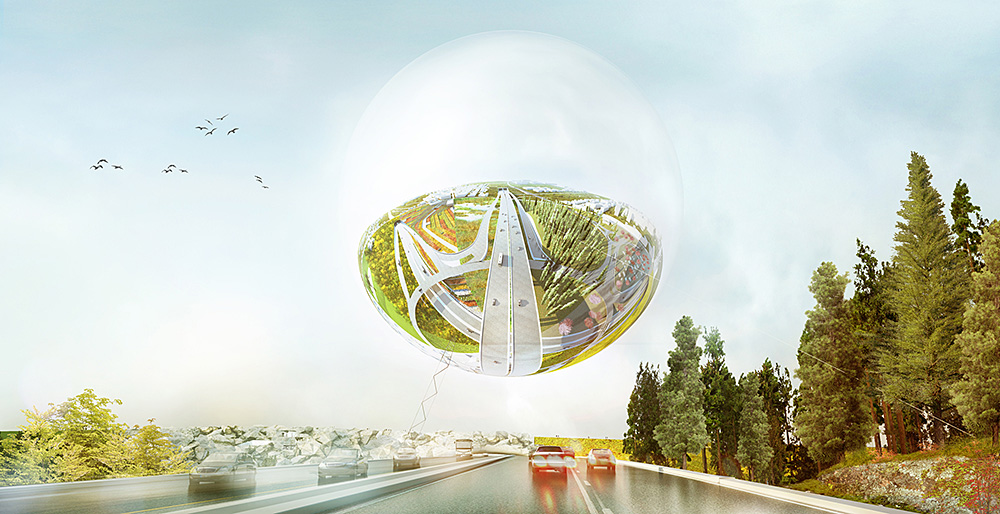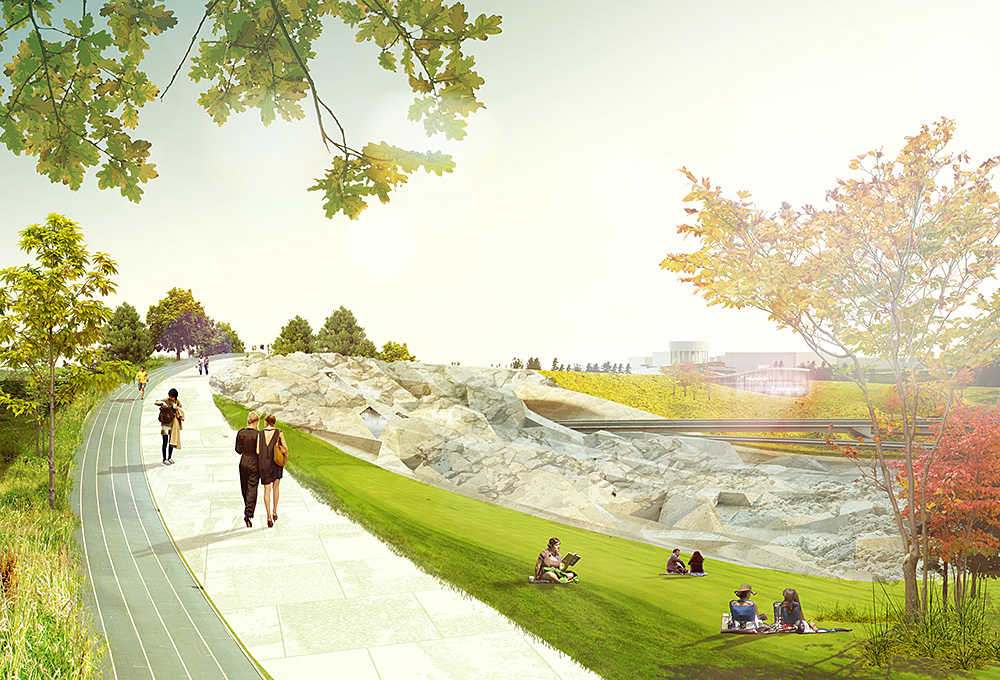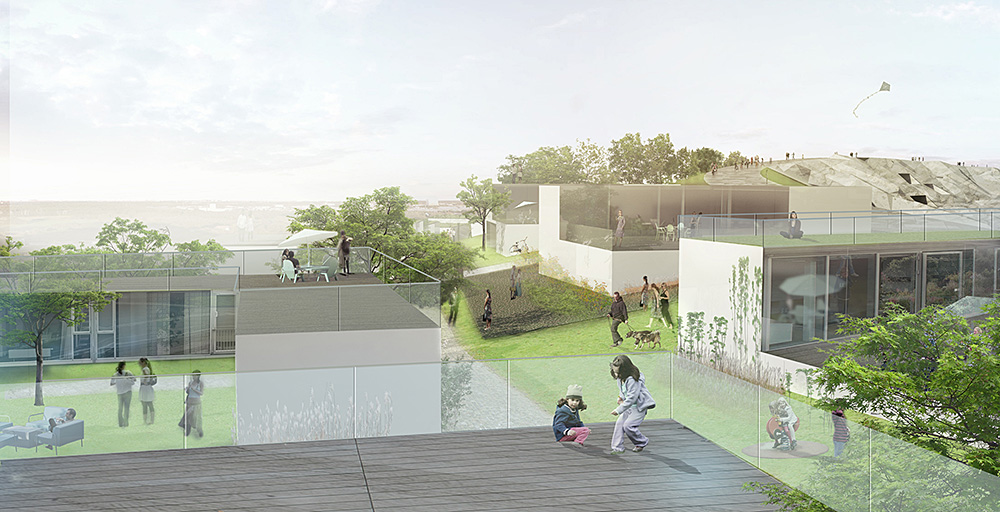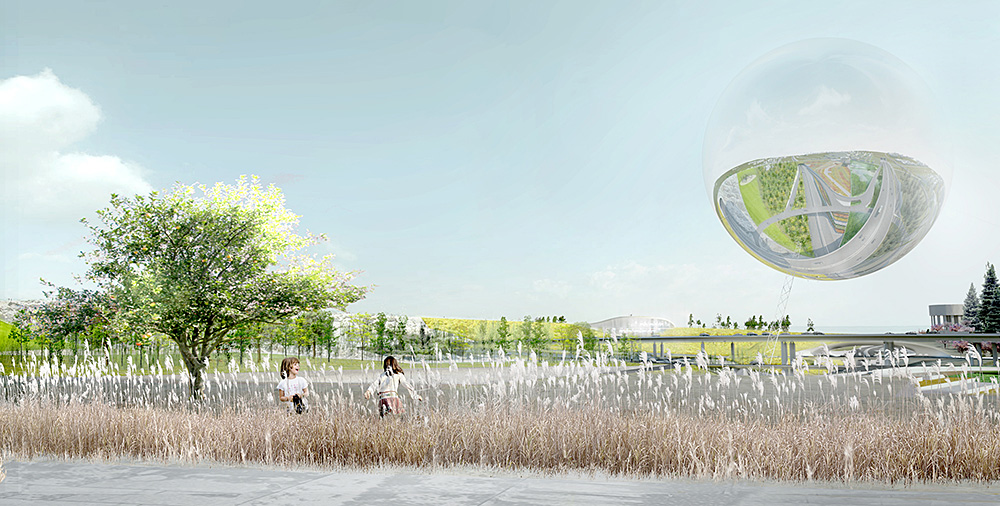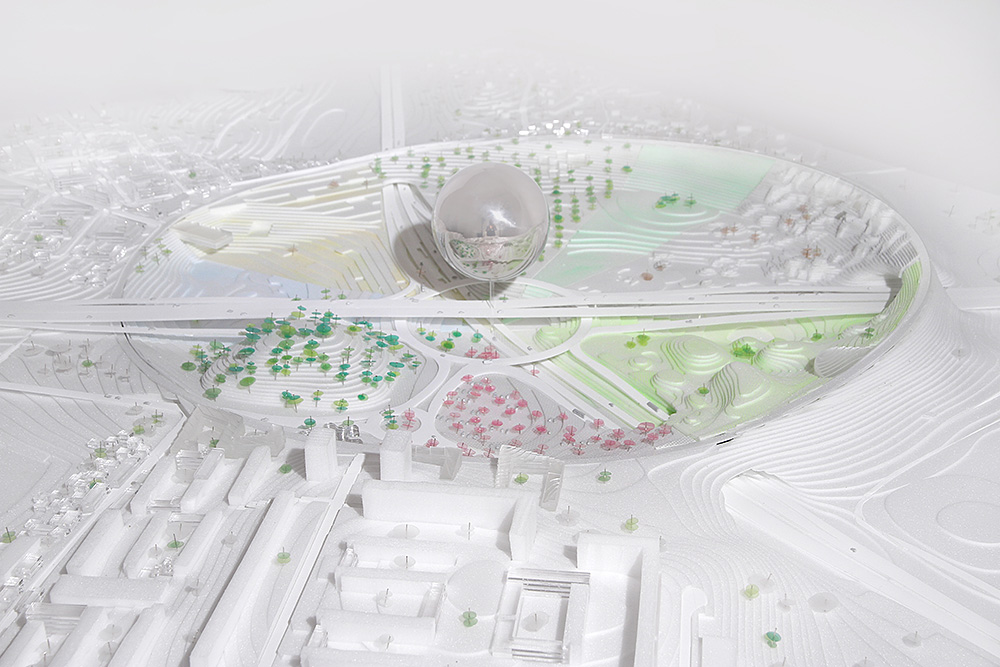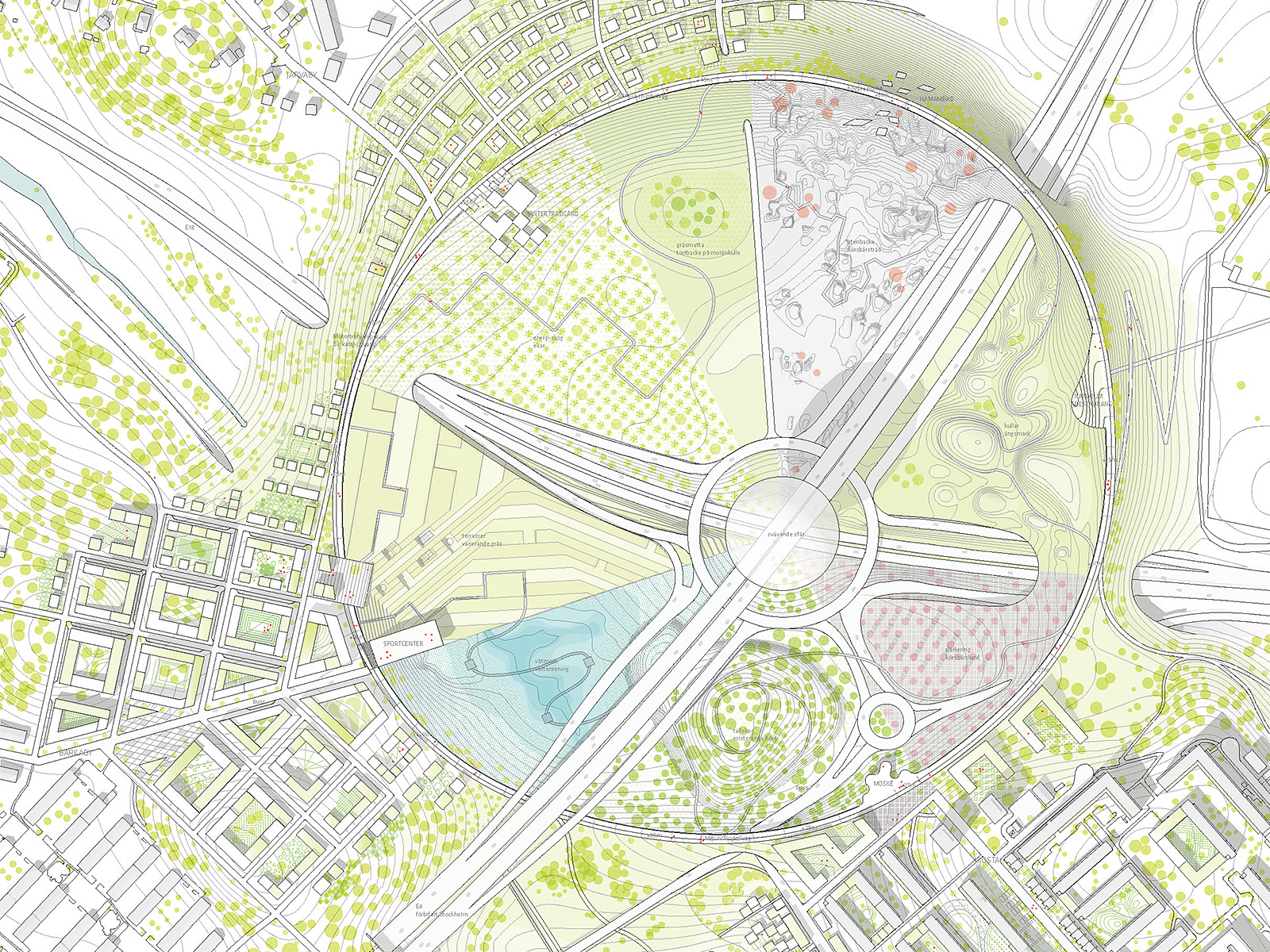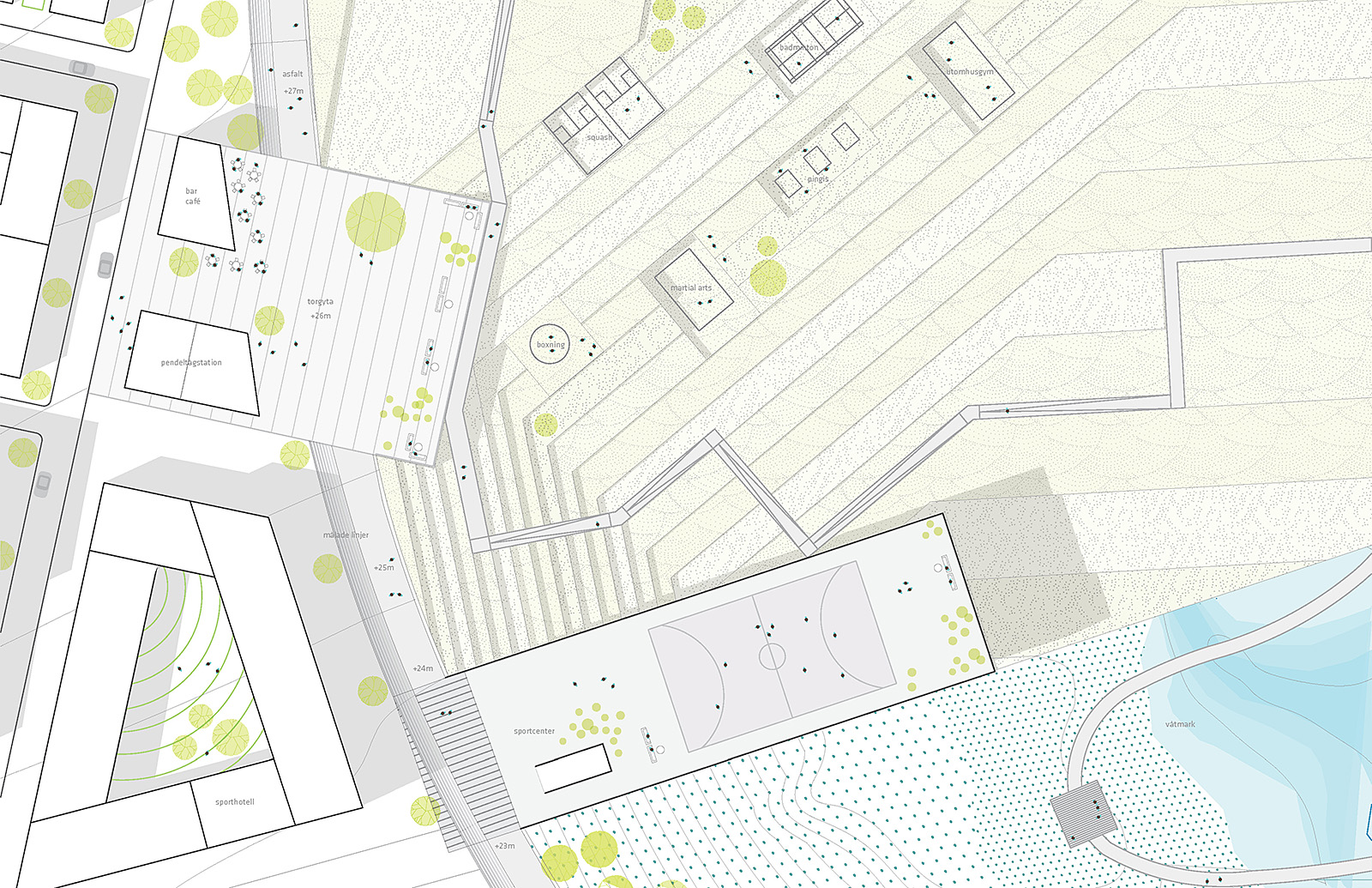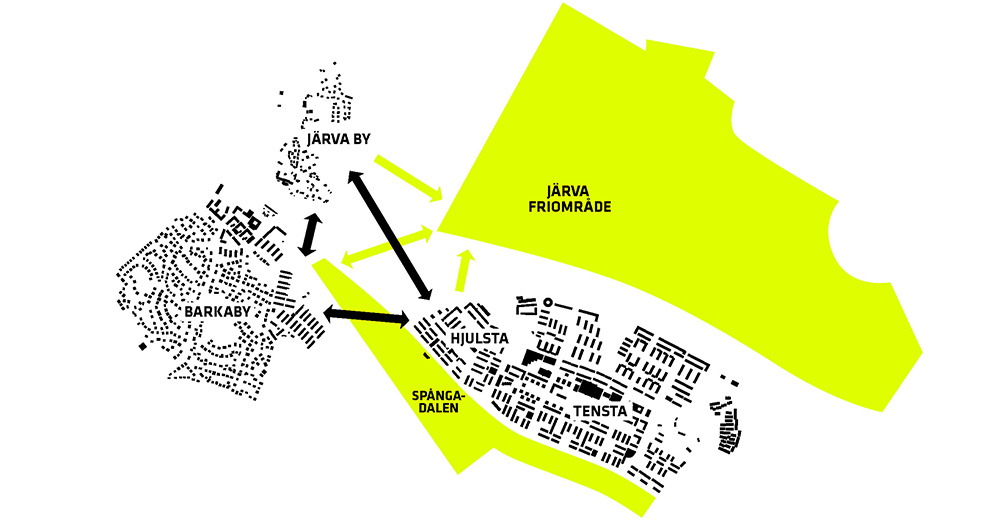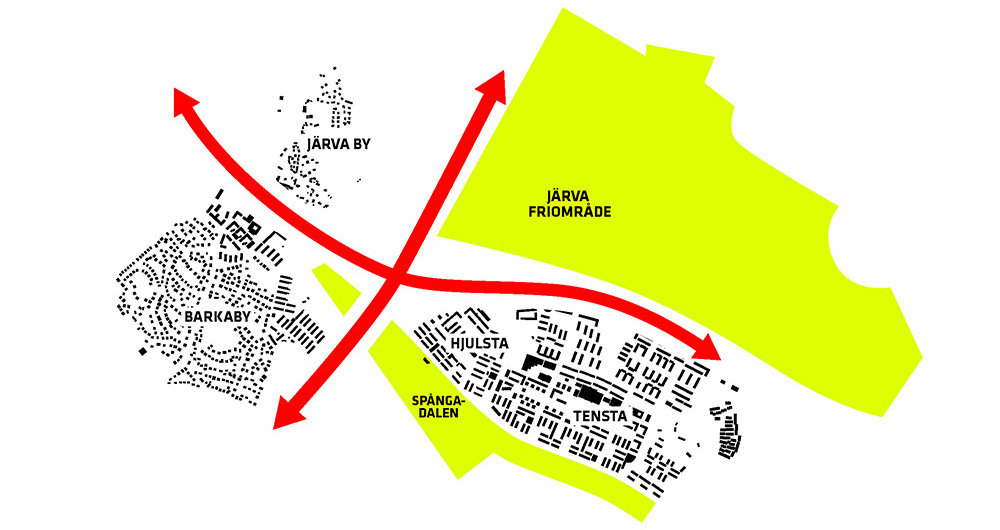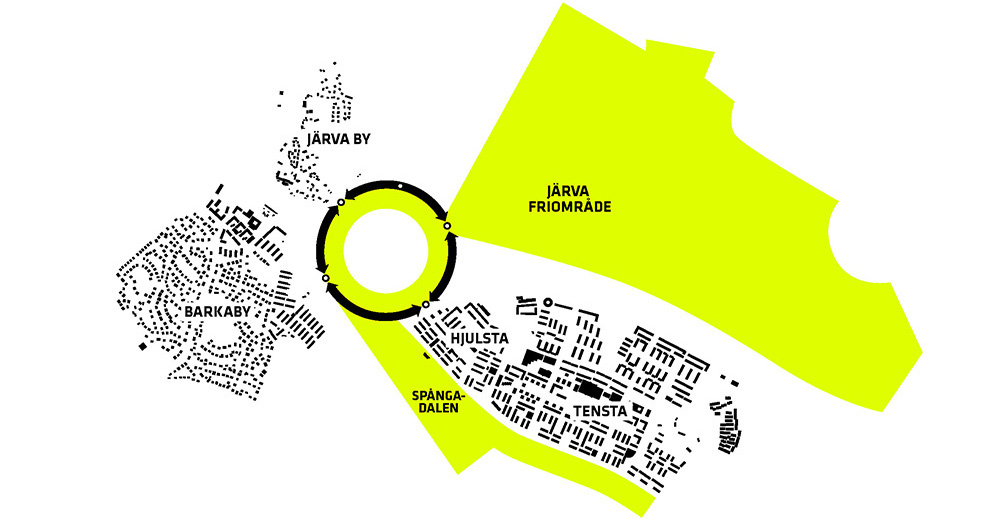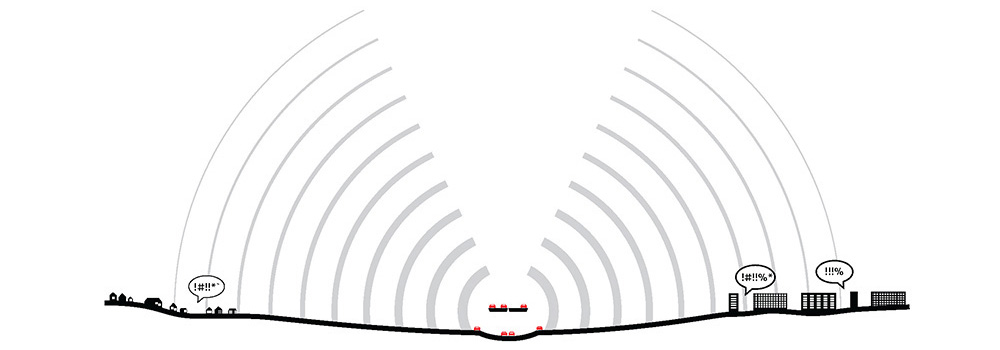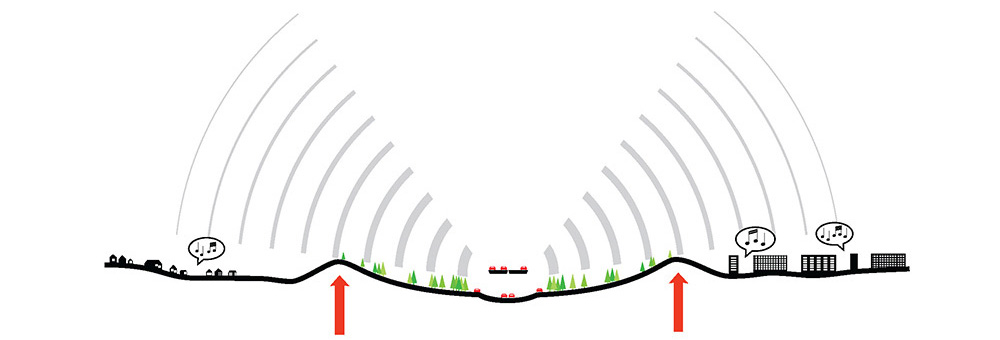BIG (Bjarke Ingels Group) + Grontmij + Spacescape are the winning team for the Stockholmsporten master plan competition to design an inviting new entrance portal into Stockholm at the intersection of a newly planned super-junction.
The traffic junction ‘Hjulsta’ is being planned in the north of Stockholm, where the two highways E18 and E4 Stockholm Bypass meets in a three level intersection. The roads create physical and visual barriers between the surrounding neighbourhoods and divide the area into four parts.
The Stockholm Sphere connects the four parts with a landscape loop. A continuous circular bike and pedestrian path aligned with public buildings and functions reconnects the different areas in an un-hierarchical and democratic way.
The central valley is turned into a pie chart park with nature of different character. The division of the park creates a diverse experience when moving in or around it.
New facades and buildings are integrated in the current building structure in Hjulsta. Focus is on adding small and large apartments to the existing midsize range. Both J?rvaby and Barkaby expand towards the landscape loop.
What is a gate, but a significant point you pass? Here that point is turned into a reflective, hovering sphere mirroring Stockholm as it is, new as well as old areas. An always updated, constantly changing icon is created. Photovoltaic film covers the 30% of the surface that faces the sun, producing enough energy to keep the sphere floating and supply 235 houses with electricity.
Concept diagrams:
Stockholm on the world map
Marketing itself and being a part of peoples’ conscious is an important part of the City of Stockholm’s ambitions. The aim of Stockholm is to become the capital of Scandinavia. What then can be done in order to generate the attention needed to leave a significant mark on the world map?
Desired connections
J?rva Friomr?de should be made accessible for the inhabitants of J?rvaby and Hjulsta as well as Barkaby. The three neighbourhoods would also benefit from improved interconnectivity. In addition, a green connection between Sp?ngadalen and the vast J?rva Friomr?de is missing.
Infrastructural barrier
Resulting from construction of the traffic junction ‘Hjulsta’, where two European highways intersect, the area is distinctly cut into four pieces.
The Green Loop
Introducing a loop links the five points defining the path without internal hierarchy. The two park areas are extended into the loop and thereby woven together.
Key points with public buildings
The intersection points between the existing areas and the proposed loop allow new public buildings to be introduced: a sports centre, a winter garden, a hamam bath, a ‘naturum’ and a mosque.
Urban development
The buildings along these streets are infiltrated and extended until the edge of the loop.
The central landscape
In the area surrounding the intersection an artificial landscape is introduced. Through a pie chart divisions every walk along the loop becomes a diverse and exiting experience.
Excavation soil
The excavation mass is transported uninterrupted from the tunnel construction of ‘E4 Stockholm Bypass’ to the new valley surrounding traffic junction ‘Hjulsta’.
Noise
High noise levels are a consequence of the heavy traffic on both highways.
The valley
The creation of a valley surrounding the intersection separates it from the neighbourhoods, giving them more protection from the impact of the highways.
How do you create a landmark when all you can see is the sky?
The surrounding as a landmark
The reflective sphere turns the surrounding itself into a landmark and lets the driver experience the neighbourhoods through a reflective image on the sphere.
Wind power
As the technology of harvesting wave energy further develops, the wind will also be a possible source of energy production in the sphere. In a similar way as wave energy is generated from the alternation between compression and tension these forces are an outcome when the wind meets the sphere.
Solar energy
The photovoltaic cells on the surface of the sphere produce energy to light the new streets and supply the new developments with electricity.
Photovoltaic cells
Photovoltaic film covers the surface of the sphere most exposed to sunlight. The area is estimated to be 30% of the full surface of the sphere, equating to 9425 sqm.
Annual energy production
The heating of the air, which keeps the sphere floating, is estimated to consume 10% of the energy produced in the sphere. The remaining energy will supply 235 houses with electricity.
Surface material
The sprayed of reflected surface and the photovoltaic cells protects the PVC-film from UV-radiation. The lifespan is prolonged to 12 years or more.
Energy distribution
All transportation of energy to and from the sphere is conducted through structural truss.
Foundation
Three cables and one structural truss anchor the sphere to the ground. If needed an internal lightweight structure can be introduced to better withstand deformation.
Safety
The construction guarantees that the material of the sphere, in case of an emergency, does not reach the highways.
Project info:
Location: Stockholm, Sweden
Architect: BIG (Bjarke Ingels Group)
Collaborators: Grontmij, Spacescape
Partner in Charge: Bjarke Ingels, Jakob Lange
Project Leader: Hanna Johansson
BIG Team: Camille Crepin, Barbora Srpkova, Alessio Valmori, Xiao Xuan Lu, Krista Meskanen, Long Zuo
Grontmij Team: Veronika Borg, Albin Ahlquist, Anders Falk , Mats Mauritzson, Nils-G?ran Nilsson, Christer Johansson, Bengt Ridell
Spacescape Team: Alexander St?hle, Tobias Nordstr?m
Client: City of Stockholm, Swedish Transport Administration
Size: 580.000 sqm


